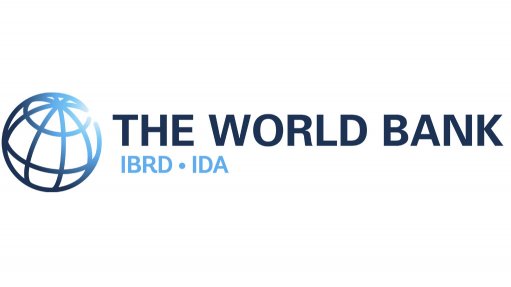CSIR calls for more research and development funds for water sector innovation
As the Council for Scientific and Industrial Research (CSIR) celebrates its milestones in developing and deploying technologies to ensure access to safe and quality water, it is calling for more funding to be directed to water research and the development of technologies to improve South African municipalities’ wastewater treatment processes and maintenance, as well as build new treatment plants.
The deteriorating quality of raw water, coupled with current water shortages, has created an urgent need to protect the country’s water resources and ensure effective water and wastewater management in South Africa.
The CSIR, which continues to spearhead research, development and innovation into low-cost wastewater treatment, has, over the years, conducted water research and developed technologies to assist local municipalities to extend the lifetime of existing wastewater treatment pond systems and improve domestic wastewater effluent quality.
In Limpopo, the CSIR successfully implemented an algae-based wastewater treatment solution at the Motetema wastewater treatment plant, in the Sekhukhune district municipality, to facilitate the effective and efficient removal of nutrients and pathogens in wastewater treatment works, the institution said in a statement.
“Inefficiently treated wastewater that is released into rivers poses a risk to the environment and human health in downstream communities. The algae-based treatment that was implemented in existing treatment ponds in Motetema uses a specific community of algal species, which have been isolated and cultured in the laboratory.”
The ponds are gravity fed and do not require any electricity, and were designed with existing human resource and skill shortages in mind, especially for rural municipalities with limited budgets.
“The aim was to build a self-sustaining system that is independent of electricity or expensive chemicals and that can be effectively operated within the current financial and capacity constraints of Southern African Development Community countries by making use of existing infrastructure, such as waste stabilisation pond systems,” said CSIR Water Research Centre senior researcher Maronel Steyn.
The CSIR also partnered with the City of uMhlathuze, in KwaZulu-Natal, to improve water resource management through the application of scientific and technological solutions.
The projects undertaken were aimed at identifying and addressing issues relating to various aspects of water provision and management, the CSIR noted, citing an example where the institution developed a lake management plan for Lake Mzingazi, as well as a rehabilitation plan for a compromised stream within the municipality.
In Gauteng, the CSIR continues to work with the Stinkwater community, in Hammanskraal, to improve the quality of ground and surface water in the area, undertaking a three-year research project aimed at investigating the health risks that untreated groundwater poses to the user community and exploring potential interventions.
“The study found that fluoride exceeded the drinking water standard in 9% of samples and nitrate exceeded the drinking water standard in 87% of samples. Escherichia coli bacteria, which is used as an indicator of faecal pollution, was also detected in most of the samples,” Steyn said.
“The CSIR is ready to work with various municipalities and organisations to improve water challenges in the country,” said CSIR Water Research Centre manager Dr Rembu Magoba, noting that collaboration is key in ensuring that quality water is delivered to South African communities, particularly in rural regions.
“We have the capabilities, skills, technology and expertise required to improve water supply. The CSIR aims to develop fit-for-purpose technologies for the development and optimisation of smart and robust water use, analytics and water infrastructure with concomitant improved operation and maintenance,” Magoba concluded.
Comments
Press Office
Announcements
What's On
Subscribe to improve your user experience...
Option 1 (equivalent of R125 a month):
Receive a weekly copy of Creamer Media's Engineering News & Mining Weekly magazine
(print copy for those in South Africa and e-magazine for those outside of South Africa)
Receive daily email newsletters
Access to full search results
Access archive of magazine back copies
Access to Projects in Progress
Access to ONE Research Report of your choice in PDF format
Option 2 (equivalent of R375 a month):
All benefits from Option 1
PLUS
Access to Creamer Media's Research Channel Africa for ALL Research Reports, in PDF format, on various industrial and mining sectors
including Electricity; Water; Energy Transition; Hydrogen; Roads, Rail and Ports; Coal; Gold; Platinum; Battery Metals; etc.
Already a subscriber?
Forgotten your password?
Receive weekly copy of Creamer Media's Engineering News & Mining Weekly magazine (print copy for those in South Africa and e-magazine for those outside of South Africa)
➕
Recieve daily email newsletters
➕
Access to full search results
➕
Access archive of magazine back copies
➕
Access to Projects in Progress
➕
Access to ONE Research Report of your choice in PDF format
RESEARCH CHANNEL AFRICA
R4500 (equivalent of R375 a month)
SUBSCRIBEAll benefits from Option 1
➕
Access to Creamer Media's Research Channel Africa for ALL Research Reports on various industrial and mining sectors, in PDF format, including on:
Electricity
➕
Water
➕
Energy Transition
➕
Hydrogen
➕
Roads, Rail and Ports
➕
Coal
➕
Gold
➕
Platinum
➕
Battery Metals
➕
etc.
Receive all benefits from Option 1 or Option 2 delivered to numerous people at your company
➕
Multiple User names and Passwords for simultaneous log-ins
➕
Intranet integration access to all in your organisation


















